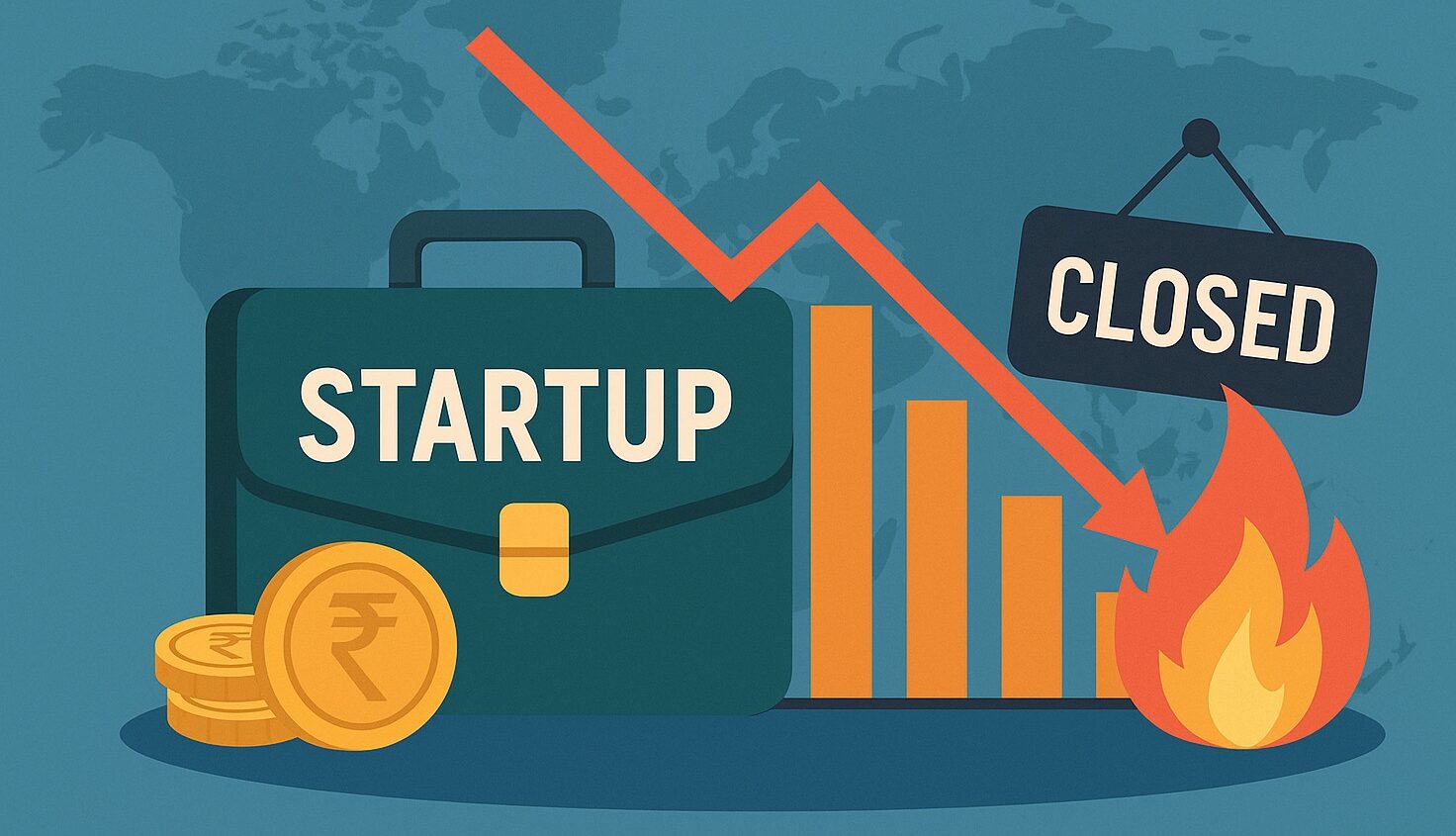India, being the hub of innovative business ideas and once celebrated as the world’s third-largest startup ecosystem, is currently facing a significant downturn. According to a report by Tracxn, the startup landscape has seen a shakeup as business shutdowns soar 12X.
As per the report, over 28,000 startups have ceased operations in the past two years- 15,921 in 2023 and 12,717 in 2024– a sharp contrast to the approximately 2,300 shutdowns recorded between 2019 and 2022.
What’s Fueling the Collapse?
The report suggests, major contributing factors to this 12X soar could be some startups that formally filed for bankruptcy, while others have become inactive, remaining dormant for over a year. Here are some major factors that have contributed to this wave of shutdowns:
- Excess Capital Influx (2021–2022)
As per some business analysts and market leaders, in the years 2021 and 2022, India’s startup ecosystem witnessed an unprecedented inflow of venture capital. The funding frenzy was largely driven by optimism, global liquidity, and fear of missing out (FOMO) among investors.
Hence, the capital was often deployed hastily into startups based on perceived opportunity rather than solid business outcomes. This environment led to many companies raising large amounts without having proven traction or sustainable growth plans.
- Premature Funding
Many startups received funding at the pre-product market fit (PMF) stage, before validating their business model or value proposition. These companies had yet to validate their core assumptions, develop a strong user base, or understand if their offering truly met a market need. Many of these businesses collapsed when their assumptions didn’t translate into real market demand.
- Lack of Substantial White Space
Apart from the premature funding, one more reason that contributed to this downfall is that several companies lacked a clear problem to solve or a large enough market gap to address as they entered already crowded or saturated markets without a unique value proposition.
- Difficulty in Securing Follow-on Funding
When business growth didn’t match expectations, startups struggled to raise additional rounds of funding. In many cases, their business performance didn’t justify the previous valuations, making it hard to attract new investors or justify a flat or down round.
With an inability to bridge operational costs or continuing product development, these businesses were forced to shutdown.
- Return of Market Discipline
As investor caution returned post the cooling off of the global markets and funding winter sets in, investors began backing only those startups that fell on sustainable growth metrics, followed a healthy unit economics, and had a clear product-market fit (PMF).
However, startups that weren’t built on solid fundamentals were naturally filtered out.
Reset and Rise: The Next Chapter for Indian Startups
While the current scenario of the Indian startup ecosystem appears bleak, experts suggest that this phase could lead to a more mature and resilient startup ecosystem. As the dust settles, it is likely that only startups built on sound business fundamentals, those with robust, scalable models, a deep understanding of market needs, and disciplined financial management, will emerge stronger. These businesses will be better positioned to withstand volatility and navigate market uncertainties.
Read More: MatBook Secures $750K in Pre-Seed Funding






















